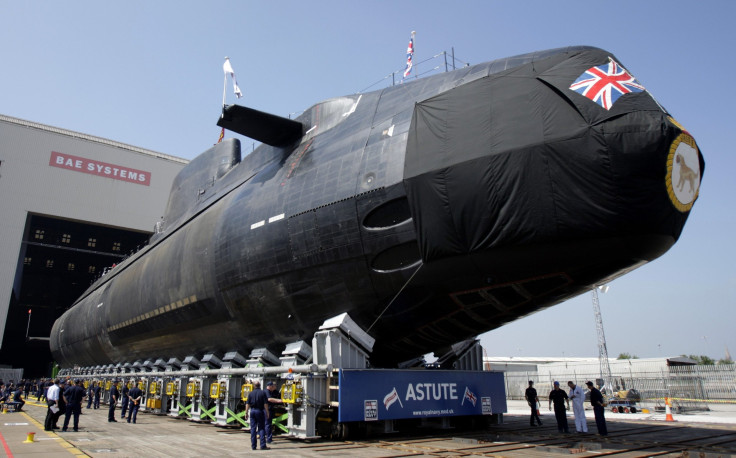Engineers Use Superglue To Repair Broken Nuclear Submarine: 'Disturbing' And 'Insulting'

KEY POINTS
- Engineers from a civilian defense contractor didn't notify the U.K. Ministry of Defense about the issue
- The defense ministry said the defect was found during a routine inspection
- U.K. Defense Secretary Ben Wallace spoke to the defense contractor "to seek assurances about future work"
Engineers allegedly used superglue to repair the nuclear reactor chamber of the British Trident submarine HMS Vanguard.
The faulty repairs on the cooling pipes aboard the HMS Vanguard, which had been at Devonport Dockyard in Plymouth, England, for maintenance, were found after one of the bolts fell off during an inspection, U.K. newspaper The Sun reported.
The bolt heads originally came off due to over-tightening. However, instead of replacing the damaged shafts and reporting the extent of the damage to the British Ministry of Defense (MoD), civilian workers with defense contractor Babcock allegedly made the repairs by gluing them back on, the report said.
Babcock engineers at the contractor reported it as a procedural glitch after the problem was found, but they allegedly did not mention they used glue to repair it.
The U.K. Ministry of Defense confirmed that a defect "from work done in the past" was found on the HMS Vanguard and that it was "promptly reported and fixed," the BBC News reported.
The defect was found during a "routine inspection as part of the final stages of the project's test and commissioning," the British MoD said.
The defense ministry stressed that it hadn't identified any "nuclear safety implications" from the incident and that the final testing of the nuclear submarine's onboard system could "safely continue."
After learning about the incident, U.K. Defense Secretary Ben Wallace demanded a meeting with Babcock "to seek assurances about future work."
Babcock, through a spokesperson, expressed "huge disappointment" over the repair issue, noting that it was through their inspection processes that it identified the defect and acted immediately.
"Safety remains our most important priority and we can confirm there was no safety or operational impact from the work," the Babcock spokesperson said, according to BBC News. "We will continue to work closely with our customer as we have throughout this most complex and critical of [programs]."
An unnamed navy source told The Sun: "It's a disgrace. You can't cut corners with nuclear. Standards are standards. Nuclear standards are never compromised."
Former British Navy commander Ryan Ramsay told The Sun that the incident created a "massive trust issue" between the navy and one of the country's biggest defense contractors. He added that incidents like these should have been reported "way before this late-stage inspection."
Luke Pollard, a U.K. Labour Party lawmaker for Plymouth, Sutton and Devonport, said the news of a defect found on the submarine is "very concerning," according to the BBC.
"News reports today of serious safety defects with work done to a nuclear submarine in Devonport are very concerning," Pollard said. "Nuclear safety isn't an optional extra - it's non-negotiable. Devonport is world-class at refitting nuclear submarines so reports that superglue was used to botch repairs is not only disturbing, it is insulting to the skilled engineers who take time to do the job right."
The nuclear submarine arrived at Devonport in 2015 to undergo maintenance, and it was expected to finish in 2020.
According to the defense contractor, the HMS Vanguard was due for a "deep maintenance, refuel and life-extension program" when it arrived.
The maintenance aims to replace obsolete systems and install new equipment and weapon systems in the nuclear submarine.
The HMS Vanguard can carry up to 16 Trident ballistic missiles that can hold multiple nuclear warheads.

© Copyright IBTimes 2024. All rights reserved.






















